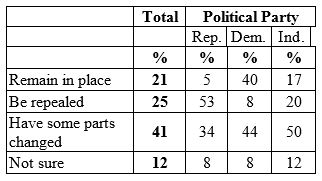The Silly Appeal of Expanding Medicaid for All
 Many people believe Obamacare was a conspiracy, with asinine design features intended to cause the program to fail. The primary goal in the minds of conspiracy buffs’ was to usher in a single-payer program of Medicare for All once Obamacare collapsed under adverse selection. The theory goes something like this: with nowhere to turn except the government, Americans would finally throw up their hands and acquiesce to government intervention. Seniors purportedly all love their Medicare, so why not expand the program to cover even more people?
Many people believe Obamacare was a conspiracy, with asinine design features intended to cause the program to fail. The primary goal in the minds of conspiracy buffs’ was to usher in a single-payer program of Medicare for All once Obamacare collapsed under adverse selection. The theory goes something like this: with nowhere to turn except the government, Americans would finally throw up their hands and acquiesce to government intervention. Seniors purportedly all love their Medicare, so why not expand the program to cover even more people?







